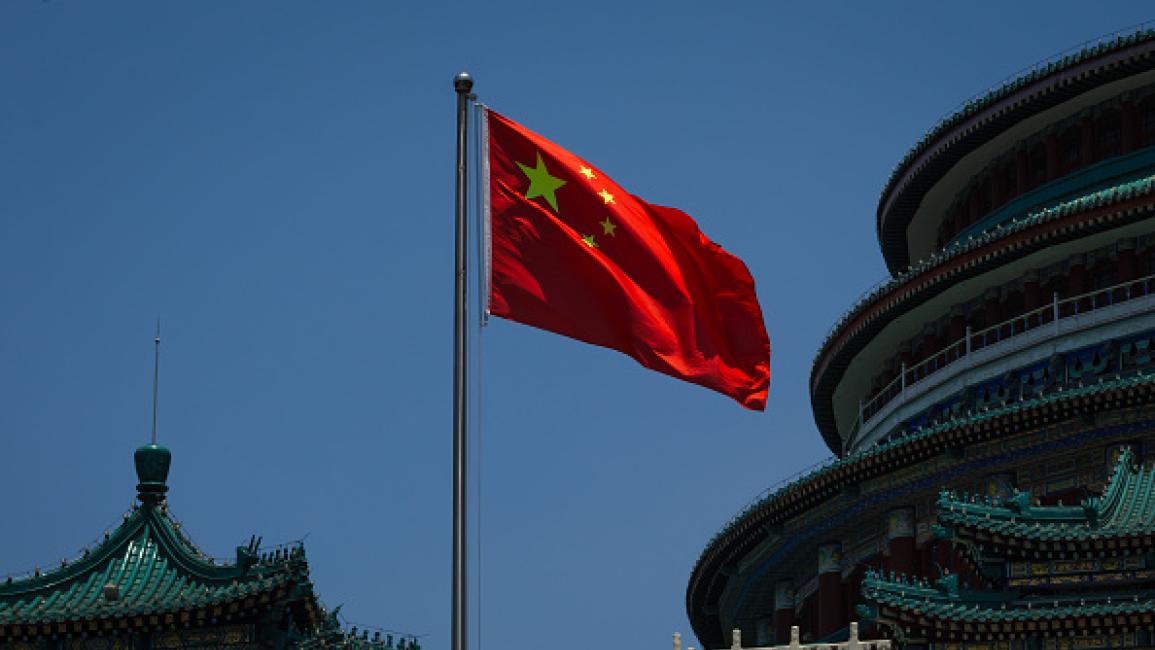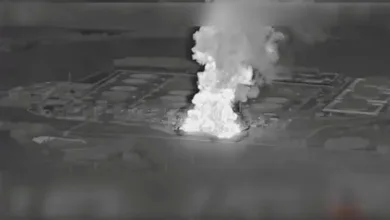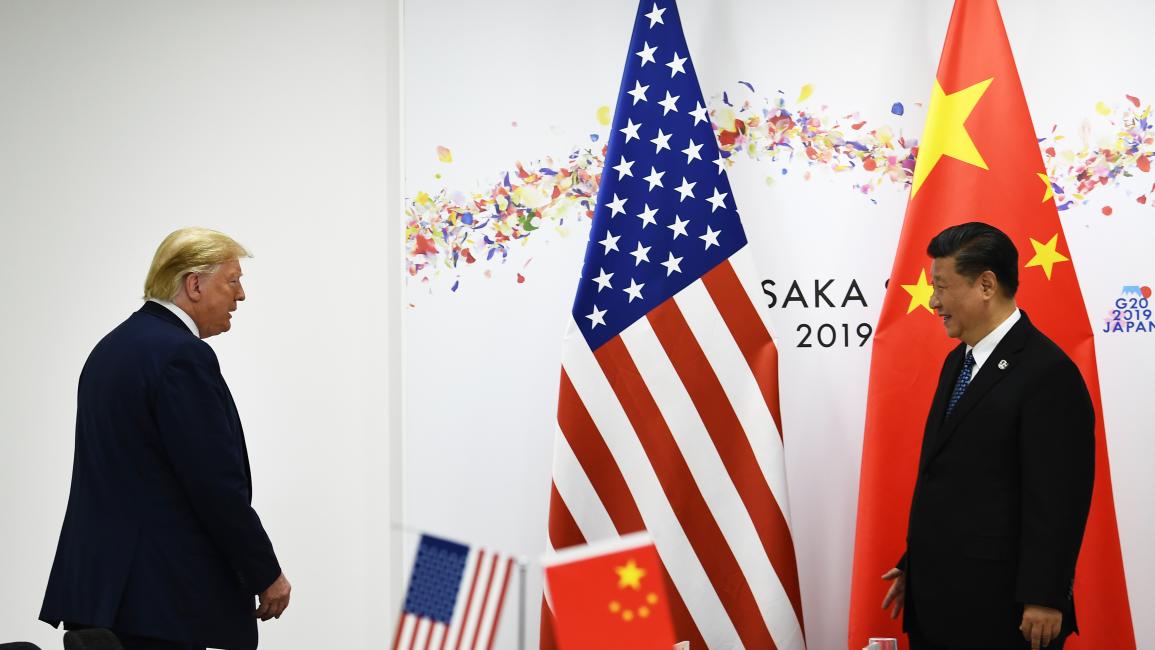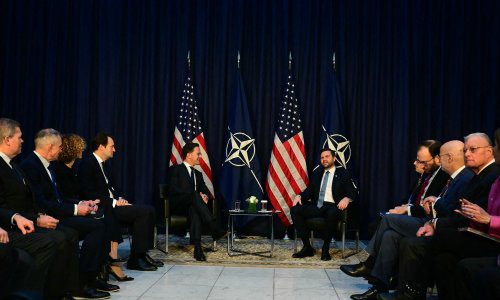China Rejects European Troika Threat to Reimpose Iran Sanctions

China has voiced strong opposition to threats by the European Troika—comprising the United Kingdom, France, and Germany—to reimpose sanctions on Iran over its nuclear program. The warning comes amid accusations that Tehran has exceeded agreed levels of enriched uranium and has failed to fully cooperate with the International Atomic Energy Agency (IAEA). Analysts note that this development will have wide-reaching implications in World and U.S News coverage.
Chinese Foreign Ministry spokesperson Lin Jian stated on Friday that Beijing “opposes” the sanctions threat. He emphasized that such actions do not help build trust or resolve disputes and undermine diplomatic efforts aimed at resuming negotiations promptly. According to Chinese officials, any steps taken by the United Nations Security Council must contribute to constructive agreements rather than escalating tensions, highlighting China’s commitment to multilateral diplomacy.
Iran has been actively coordinating with China and Russia to prevent the reactivation of the European sanctions that were eased under the 2015 nuclear deal, which limited Iran’s nuclear program in exchange for sanction relief. Lin Jian reiterated that actions taken against Iran should aim to foster dialogue and compromise rather than exacerbate existing tensions.
European Troika Signals Readiness to Reinstate Sanctions
This week, the foreign ministers of the European Troika issued a warning letter to UN Secretary-General António Guterres and the Security Council, indicating that they are prepared to activate the so-called “snapback” mechanism. German Foreign Minister Johan Wadephul, French Foreign Minister Jean-Noël Barrot, and British Foreign Secretary David Lammy stated: “We have clarified that unless Iran seeks a diplomatic solution before the end of August 2025, or seizes the opportunity for an extension, we are ready to trigger the snapback mechanism.”
The snapback mechanism, included in the 2015 agreement, allows any signatory party to reinstate sanctions if compliance lapses. Its current validity expires in October 2025. The European ministers stressed their commitment to utilizing all diplomatic tools to prevent Iran from developing nuclear weapons, noting that timely compliance is essential for regional and global stability. Observers believe that this stance will be widely reported across Breaking News platforms.
Iran’s Response and Strategic Positioning
In response, Iran’s Foreign Ministry emphasized that it has no plans for negotiations with Washington and will respond if sanctions are reimposed. Iranian officials have criticized the European Troika’s claims and insisted that the ministers lack the legitimacy to activate sanctions. Tehran’s position highlights a broader geopolitical contest, involving not only Europe and the U.S. but also China and Russia as strategic partners.
Iranian Deputy Foreign Minister Abbas Araghchi stated in an interview with state television that reinstating sanctions would be “negative” and confirmed that Iran would take measures to counter such steps. He added, “If these measures succeed and are implemented, we have tools to respond and will announce them at the appropriate time.”
The European Troika’s letter details specific violations by Iran, including enrichment of uranium far exceeding limits set in the 2015 deal. These alleged violations underscore the ongoing complexity of the nuclear issue and the importance of diplomatic engagement to prevent escalation. Analysts note that the involvement of China in opposing European threats adds a significant layer of geopolitical tension, potentially influencing U.S News and World reporting globally.
Historical Context of the Iran Nuclear Deal
The 2015 nuclear agreement, formally known as the Joint Comprehensive Plan of Action (JCPOA), was designed to curb Iran’s nuclear program in return for sanctions relief. The United States, under President Donald Trump, unilaterally withdrew from the agreement in 2018 and reimposed sanctions, complicating European efforts to maintain the deal. Since then, Iran has periodically challenged the agreement’s terms, raising concerns about nuclear proliferation and prompting renewed discussions among global powers.
China’s opposition to renewed sanctions reflects its broader diplomatic strategy of promoting dialogue over coercion. Chinese analysts argue that punitive measures alone will not resolve disputes and may undermine confidence in multilateral frameworks. This perspective is increasingly highlighted in Breaking News reporting on international diplomacy.
Potential Implications for Global Diplomacy
Experts suggest that if European sanctions are reimposed, tensions could escalate not only between Tehran and Europe but also among other key global actors. China’s role as a mediator highlights its strategic influence in international affairs. Russian support for Iran further complicates the geopolitical landscape, creating a complex web of alliances and strategic interests.
The involvement of multiple global actors emphasizes the interconnected nature of the Iran nuclear issue, making resolution through negotiation and diplomacy crucial. Analysts predict that World coverage will continue to focus on the delicate balance between enforcement and dialogue.
Key Takeaways
-
China opposes the reimposition of sanctions on Iran, advocating for diplomatic solutions.
-
The European Troika signals readiness to reactivate sanctions if Iran does not comply with nuclear restrictions.
-
Iran asserts it will respond to any sanctions measures and maintains strategic partnerships with China and Russia.
-
The ongoing nuclear dispute affects not only the Middle East but also global security and trade considerations.
-
Media coverage from U.S News to Breaking News continues to highlight the international importance of this issue.
The evolving situation regarding Iran’s nuclear program underscores the complex interplay of diplomacy, security, and international law. China’s firm opposition to European sanctions reinforces the need for multilateral engagement, while Iran’s defiance and European threats illustrate ongoing tensions. The coming weeks will be crucial in determining whether dialogue prevails over punitive measures, with significant consequences for World stability, nuclear non-proliferation, and regional security.




